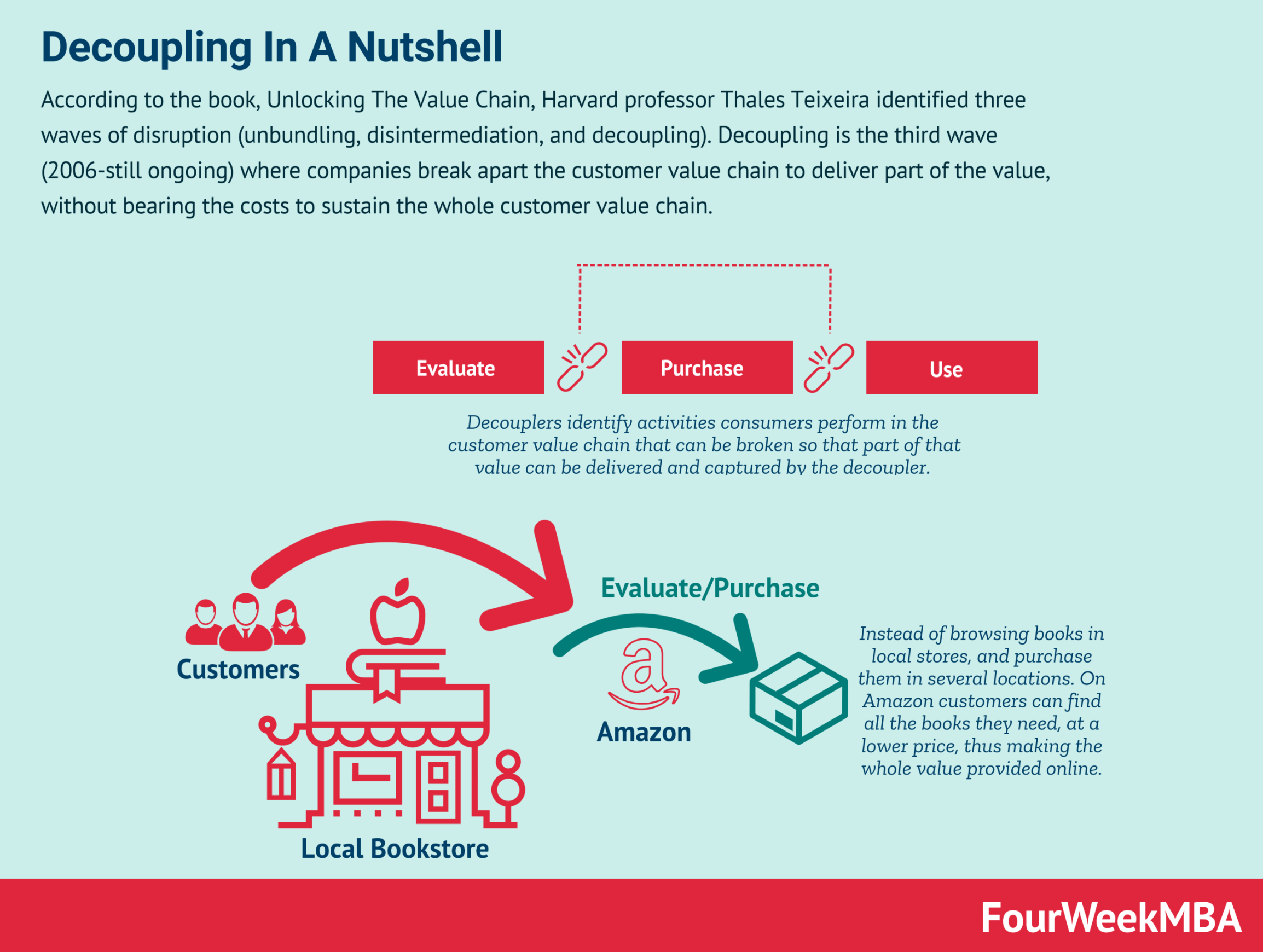Managing Risk In The Era Of The Great Decoupling

Table of Contents
Understanding the Dynamics of the Great Decoupling
The Great Decoupling refers to the unraveling of deeply integrated global supply chains and economic relationships, driven largely by geopolitical tensions and a desire for greater national security and economic independence. This shift represents a move away from globalization towards regionalization and potentially, fragmentation.
Geopolitical Fragmentation and its Implications
The rise of protectionist policies, trade wars, and geopolitical rivalries is profoundly impacting global trade and investment. Countries are increasingly prioritizing national interests, leading to the restructuring of supply chains and the emergence of new economic blocs.
- Increased trade barriers: Tariffs, quotas, and sanctions are creating significant friction in international trade, increasing costs and complexity for businesses.
- Sanctions: Geopolitical sanctions are becoming a more frequent tool, disrupting supply chains and impacting access to markets.
- Regionalization of supply chains: Companies are increasingly looking to regionalize their supply chains to reduce reliance on distant and potentially unreliable partners. This involves nearshoring and friend-shoring initiatives.
- Technological decoupling: The competition between major powers is extending to technology, with efforts to limit the flow of sensitive technologies and create alternative technological ecosystems.
Assessing Emerging Risks
The Great Decoupling introduces a new set of risks that require careful consideration. Traditional risk management approaches are often insufficient in this complex and rapidly changing environment.
- Increased vulnerability to supply chain shocks: Regionalized supply chains, while offering some benefits, can also increase vulnerability to localized disruptions. A disruption in one region can have cascading effects.
- Inflation impacting profitability: Disruptions to supply chains and increased trade barriers contribute to higher inflation, squeezing profit margins for businesses.
- Currency fluctuations impacting investment returns: Geopolitical instability can lead to significant currency fluctuations, impacting the returns on international investments.
- Increased cyberattacks targeting critical infrastructure: The increasing reliance on technology also increases vulnerability to cyberattacks, which can cripple supply chains and disrupt operations.
Strategies for Effective Risk Management in a Decoupled World
Effectively managing risk in this era requires a multi-faceted approach that emphasizes resilience, adaptability, and foresight.
Diversification and Resilience
Diversification is no longer a best practice; it's a necessity. Businesses and investors must diversify their investments and supply chains to mitigate the impact of disruptions.
- Geographic diversification of investments: Spreading investments across different regions reduces exposure to localized risks.
- Multiple sourcing strategies: Relying on multiple suppliers, located in different regions, reduces reliance on any single source.
- Building buffer stocks: Maintaining sufficient inventory levels can help cushion the impact of supply chain disruptions.
- Investing in supply chain technology: Utilizing technology like blockchain and AI can improve supply chain visibility and resilience.
Enhanced Due Diligence and Scenario Planning
Robust due diligence is crucial for identifying and assessing potential risks. Scenario planning helps prepare for various potential outcomes.
- Comprehensive risk assessments: Conduct thorough assessments to identify potential geopolitical, economic, and environmental risks.
- Geopolitical risk analysis: Engage experts to analyze the geopolitical landscape and identify potential threats to your business.
- Stress testing: Simulate various scenarios, such as trade wars or sanctions, to assess their potential impact.
- Scenario planning for different geopolitical scenarios: Develop contingency plans to address various potential disruptions.
Technological Adaptation and Innovation
Technology plays a vital role in mitigating risks and enhancing resilience.
- Investing in automation to reduce reliance on specific regions: Automation can reduce dependence on labor-intensive processes in specific regions.
- Using AI for predictive risk modeling: AI can analyze vast amounts of data to identify emerging risks and predict potential disruptions.
- Leveraging data analytics for real-time risk monitoring: Real-time data analysis allows businesses to quickly identify and respond to emerging threats.
Adapting Investment Strategies for the Great Decoupling
Investors need to adapt their strategies to navigate the uncertainties of the Great Decoupling.
Portfolio Diversification for Geopolitical Stability
Geopolitical risks necessitate a more diversified investment portfolio.
- Diversify across geographies and asset classes: Reduce reliance on any single region or asset class.
- Allocate to defensive assets: Consider assets like gold or government bonds that tend to perform well during times of uncertainty.
- Consider inflation-protected securities: Protect against the impact of inflation, which is often exacerbated by geopolitical instability.
ESG Considerations and Responsible Investing
ESG factors are increasingly important in investment decisions, and are often linked to reduced geopolitical risk.
- Investing in companies with strong ESG profiles: Companies with strong ESG profiles tend to be more resilient and less vulnerable to geopolitical risks.
- Considering human rights and environmental impact: Investing responsibly helps avoid exposure to companies with potentially problematic practices.
- Engaging with companies on ESG issues: Engage with companies to promote responsible business practices and reduce geopolitical risk.
Conclusion
The Great Decoupling presents significant challenges to businesses and investors, requiring a proactive and adaptable approach to managing risk. By understanding the dynamics of this shift, implementing robust risk management strategies, and adapting investment strategies accordingly, stakeholders can navigate this volatile environment and potentially capitalize on emerging opportunities. Prioritizing diversification, enhanced due diligence, technological adaptation, and responsible investing are crucial steps for effectively managing risk in the era of the Great Decoupling. Don't wait – begin evaluating your current risk management strategies and start implementing changes to ensure your resilience in this new geopolitical landscape. Learn more about effective risk management strategies today.

Featured Posts
-
 Uk To Tighten Visa Rules For Pakistan Nigeria And Sri Lanka
May 09, 2025
Uk To Tighten Visa Rules For Pakistan Nigeria And Sri Lanka
May 09, 2025 -
 Indonesias Reserve Drop Rupiah Depreciation And Economic Implications
May 09, 2025
Indonesias Reserve Drop Rupiah Depreciation And Economic Implications
May 09, 2025 -
 Arkema Premiere Ligue Paris Sg Met Fin A La Serie De Dijon
May 09, 2025
Arkema Premiere Ligue Paris Sg Met Fin A La Serie De Dijon
May 09, 2025 -
 Silniy Snegopad Aeroport Permi Ne Rabotaet Do 4 00
May 09, 2025
Silniy Snegopad Aeroport Permi Ne Rabotaet Do 4 00
May 09, 2025 -
 Auto Dealers Intensify Opposition To Ev Sales Requirements
May 09, 2025
Auto Dealers Intensify Opposition To Ev Sales Requirements
May 09, 2025
